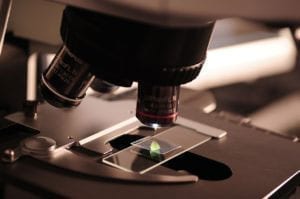Cystinuria
What is cystinuria?
Cystinuria is a rare condition that occurs when the amino acid cystine builds up in the kidneys and bladder. This excess cystine accumulates and forms crystals, which have the potential to become stones and get stuck in the kidney or bladder. If the stones merge with calcium molecules they can become larger stones, which can block the urinary tract and become a site for bacterial infections.
What are the symptoms of cystinuria?
A major sign of cystinuria is very high levels of cystine in the urine. Symptoms include a sharp pain in the lower back or side of the abdomen, an obstructed urinary tract, blood in the urine, and infections of the urinary tract. Urinary stones are an additional symptom.
It is important to seek treatment for this condition, as it can lead to kidney damage over time.
What causes cystinuria?
Mutations in the SLC3A1 and SLC7A9 genes result in cystinuria, both of which are inherited in an autosomal recessive pattern. They are responsible for subunits of a protein complex that is necessary in the kidneys that is responsible for reabsorbing amino acids, like cystine, back into the blood. When the genes are mutated, the protein complex does not do its job, which leads to the accumulation of cystine in the kidneys and bladder.
How is cystinuria diagnosed?
Doctors will take a urine sample with the aim of identifying cystine crystals in the urine. Genetic testing is also available for this condition.
What are the treatments for cystinuria?
Doctors recommend drinking lots of fluids throughout the day and night to lower cystine levels in the urine, along with adding dietary salt and restricting animal proteins in one’s diet. Drugs can also be prescribed to lower the amounts of cystine in the urine, such as potassium citrate and acetazolamide. Thiola is another FDA approved treatment for cystinuria.
A less popular treatment approach is d-penicillamine. This treatment makes the cystine more soluble, but it is not as effective as thiola and brings side effects.
If stones become large and painful, then surgery may be necessary to remove them. Fortunately, the stones are often small and can be passed through urination.
Where can I find out more about cystinuria?
Cystinuria Articles

This Research Study Explored the Molecular Mechanisms of Cystinuria

Patient Story: Brother Saves Sister with Cystinuria Through a Kidney Transplant

ICYMI: Tiopronin Available in US for Severe Homozygous Cystinuria






